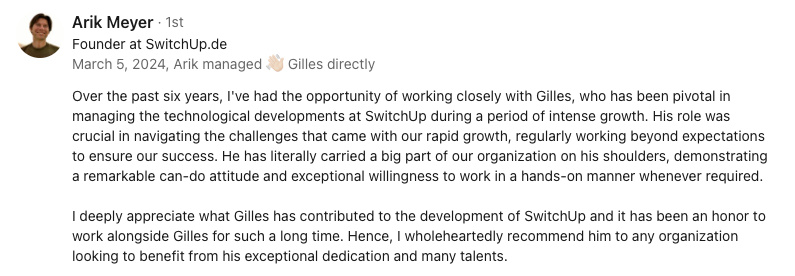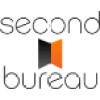Abstract:
The article explores the profound impact of blockchain technology on tech startups, emphasizing its role in enhancing collaboration, security, and transparency. It outlines how blockchain, as a decentralized ledger, secures data and fosters trust by providing an unchangeable record of transactions, thus ensuring accountability and reducing risks. The technology's transparency facilitates seamless data sharing among remote teams, improving communication and project management. Blockchain also enhances security by encrypting communications and ensuring GDPR compliance through automatic, immutable records. The article highlights real-world examples like We.trade and OriginTrail, which demonstrate blockchain's potential to improve trade finance and supply chain data sharing. It also discusses emerging tools like Colony and Aragon that decentralize task management. While acknowledging challenges such as scalability and regulatory hurdles, the article notes that the EU's supportive regulatory environment fosters innovation. Future advancements in blockchain, including improved consensus models and user-friendly interfaces, promise to make the technology more accessible and beneficial for startups, positioning them as leaders in collaborative innovation. Overall, blockchain is presented as a strategic asset for tech startups to enhance teamwork and meet regulatory standards.
Blockchain technology is a significant development for tech startups. It's not just a passing trend; it facilitates collaboration, security, and transparency. Blockchain secures data and builds trust by clearly and securely displaying every transaction. Although it may seem complex, its benefits for teamwork are substantial. Whether you're concerned about data security or looking to streamline team agreements, blockchain can greatly enhance your startup's operations.
Blockchain Basics for Tech Startups: Enhancing Collaboration
Understanding Blockchain Principles
Blockchain is an effective tool for boosting teamwork in tech startups. It’s a decentralized ledger, meaning data is stored in multiple locations simultaneously. This setup enhances security and reliability since there’s no single point of control. It’s akin to a team sharing responsibility, reducing risks, and maintaining transparency and security.
One of blockchain’s standout features is its immutability. Once data is entered, it cannot be altered, providing a reliable record of contributions. This is excellent for maintaining data integrity and accountability, akin to a clear map of contributions, eliminating confusion.
Blockchain’s transparency ensures everyone has access to the same information, transforming how teams share and verify data. This openness keeps remote teams connected and aligned, smoothing collaboration.
Applying Blockchain to Collaboration Tools
Blockchain transforms collaboration tools by eliminating the need for a central authority. This reduces delays and vulnerabilities, similar to a team that operates efficiently even if one member is absent. Blockchain also secures team communications, protecting sensitive information.
The technology supports project accountability by recording every change. Tracking contributions becomes straightforward, ensuring everyone is accountable for their part. This aids in managing project timelines and building trust.
Enhancing Security and Privacy with Blockchain
Blockchain for Secure Communication
For tech startups, securing communication is crucial. Blockchain ensures messages and data remain confidential, safeguarding them from unauthorized access. It functions like a digital vault, accessible only to authorized individuals, keeping communications secure.
Blockchain encryption ensures that only authorized personnel can access sensitive data. This is vital for startups handling proprietary information. Even if data is intercepted, without the right key, it remains inaccessible.
GDPR Compliance Through Blockchain
Blockchain’s immutable records aid GDPR compliance by providing clear data processing histories. Every action is timestamped and unalterable, simplifying audits and ensuring transparent data practices.
Smart contracts can automate GDPR compliance, ensuring consent and data access rules are followed without human error. This simplifies regulatory adherence and minimizes mistakes.
Building Trust with Blockchain in Team Collaborations
Creating Transparent Audit Trails
Blockchain offers a clear, immutable record of communications and decisions. This transparency fosters trust among team members by ensuring everyone has the same information. It’s like having a clear picture of contributions, reducing misunderstandings.
Moreover, blockchain tracks each contribution, helping avoid disputes about work done. This accountability recognizes everyone’s efforts and helps resolve conflicts with clear evidence.
Smart Contracts for Team Agreements
Smart contracts automate tasks once specific conditions are met, acting like a digital assistant handling details without human input. Whether releasing funds or sending updates, smart contracts ensure everything proceeds as planned, allowing teams to focus on their work.
These contracts ensure commitment adherence, building trust. It’s like having a reliable team member who remembers everything, encouraging responsibility.
Exploring Real-World Applications and Emerging Solutions
Successful Integration in Startups
We.trade exemplifies blockchain improving trade finance by accelerating transactions and reducing fraud. Similarly, OriginTrail uses blockchain for enhanced supply chain data sharing, maintaining data quality without high costs.
Provenance employs blockchain to track product origins, enhancing consumer trust in industries like food and fashion. This transparency fosters consumer confidence and engagement.
Emerging Blockchain-Based Collaboration Tools
Platforms like Colony and Aragon are decentralizing task management and governance, empowering users and reducing bureaucracy. Gitcoin incentivizes open-source collaboration with cryptocurrency, encouraging global developer participation.
DAOstack provides tools for managing decentralized organizations, enhancing decision-making and resource management. This helps startups remain agile as they grow.
Navigating Blockchain Adoption Challenges
Overcoming Initial Hurdles
- Scalability: A significant challenge for blockchain adoption is limited transaction capacity, which can deter startups. Addressing this is crucial for broader use.
- Integration: Integrating blockchain with existing systems can be challenging due to compatibility issues, often requiring significant updates that can be costly and time-consuming.
Navigating the Regulatory Landscape
Different countries have varying blockchain regulations, complicating cross-border technology integration for startups. The EU Blockchain Strategy aims to address this, but startups still face the challenge of aligning with diverse laws.
Assessing European Tech Landscape Readiness
Supportive Regulatory Frameworks
The EU’s approach to blockchain regulation supports innovation while balancing consumer protection and development needs, creating a promising environment for startups.
Country-Specific Initiatives
Countries like Germany, Switzerland, and Estonia offer robust support for blockchain startups, providing access to funding and mentorship.
Addressing Public Perception and Trust
Building trust in blockchain requires transparency and education to dispel misunderstandings. This openness is vital for gaining public confidence and driving adoption.
Future Innovations in Blockchain for Collaboration Tools
Potential Advancements
- Consensus Models: Improvements in models like Proof of Stake address scalability and energy efficiency, making blockchain more viable for startups.
- Interoperability: Advancements will facilitate easier integration with existing systems, enhancing collaboration.
- User-Friendly Interfaces: More accessible interfaces encourage wider blockchain adoption.
Strategic Adoption for European Startups
Blockchain helps meet regulatory standards while enhancing collaboration, positioning it as a strategic asset for tech startups. Aligning with EU frameworks ensures compliance and supports growth.
Embracing blockchain positions startups as leaders in collaborative innovation, enabling them to drive advancements in teamwork. Blockchain can significantly improve collaboration for tech startups by providing a secure, transparent, and decentralized environment. It enhances data security, trust, and accountability, making it an invaluable tool for modern teamwork. Consider how blockchain could transform your startup’s collaborative processes.














